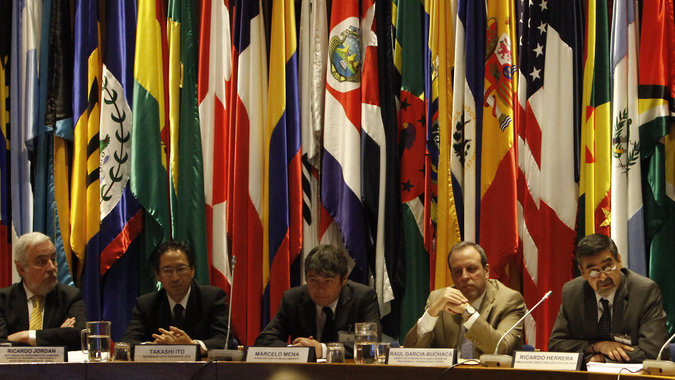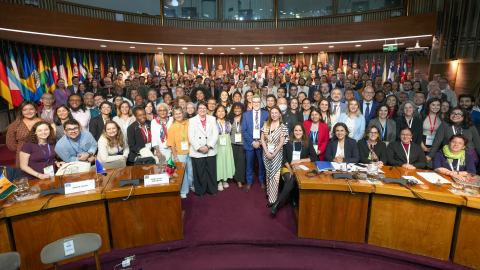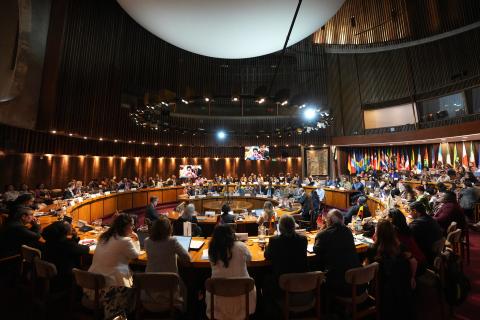Briefing note
Between now and 30 January at the headquarters of the Economic Commission for Latin America and the Caribbean (ECLAC), 25 public officials from Chile, Colombia, Costa Rica, Cuba, Dominican Republic, Guatemala, Paraguay, Panama and Uruguay will take part in the training programme on environmental education, which will use case studies from Chile and Japan to provide them with the tools to manage and resolve critical sustainability problems in the region’s territories.
Today the Director of ECLAC’s Programme Planning and Operations Division, Raúl García-Buchaca, opened the second international course on Education for sustainable development: territory as an educational space.
According to Mr. García-Buchaca “Through education we learn to see, value and internalize the potential but also the huge and complex challenges of inhabiting territories sustainably, so as to learn once and for all how to combine growth with sustainable development for the well-being of current and future generations”.
This initiative, which is supported by ECLAC, is the result of a technical cooperation agreement signed by the Government of Japan, represented by the Japan International Cooperation Agency (JICA), and the Government of Chile, through the Ministry of the Environment and the Chilean International Cooperation Agency (AGCI).
According to Marcelo Mena, Chilean Undersecretary for the Environment, “No anti-pollution plan or environmental strategy will succeed unless it goes hand in hand with a strategy for education on sustainability, which should cover formal/classroom education, as well as cross-cutting educational activities that are mainstreamed within society. This education should consider citizen participation”. He highlighted the use of social networks, films, music and outdoor activities for this purpose.
Executive Director of AGCI, Ambassador Ricardo Herrera, emphasized the importance of inclusive development: “Our cooperation is focused on environmental matters but also social development and territorial inclusion (which means people building their own development within their communities)”.
The JICA Resident Representative, Takashi Ito, briefly described the bilateral Chilean-Japanese project implemented between 2007 and 2010 in Chile’s Libertador Bernardo O’Higgins Region, which gave rise to this international course. He added that participants would be told about the Japanese experience in citizen participation and natural disaster prevention.
The opening was also attended by the Ambassadors of Peru and the Dominican Republic (Fernando Rojas and Pablo Mariñez, respectively), the First Secretary of the Embassy of Japan, Shinji Nomura, and other diplomatic representatives from the region.



